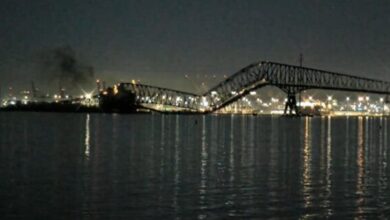Military Escalation in Yemen: US and British Jets Bomb Radar and Missile Sites, Houthi Threats Loom Large

In a dramatic turn of events, British and American jets carried out airstrikes on radars and missile sites in Yemen during the early hours of Friday. The operation, deemed necessary for regional security, has been officially completed, but the U.S. has made it clear that it stands ready to resume if circumstances demand.
The military action has not gone unnoticed, as Houthi leader Abdel-Malik al-Houthi issued a stern warning in response. He asserted, “Any American attack will not remain without a response. The response will be greater than the attack that was carried out with 20 drones and a number of missiles.” The Houthi leader’s statement underscores the escalating tensions in the region.
Crucially, all Gulf countries, with the exception of Oman, granted permission for American and British fighter aircraft to utilize their airspace for the strikes on Yemen. This coalition effort signals a coordinated response to what is perceived as a threat to regional stability.
However, reports from Al-Mayadeen agency suggest a potential setback for the U.S., stating that an American warship has been hit by an anti-ship missile, likely of ballistic nature, launched by Yemeni Houthi fighters. This development raises concerns about the ongoing conflict’s unpredictability and the risks involved for international forces operating in the region.
Saudi Arabia’s Foreign Minister weighed in on the situation, emphasizing the Kingdom’s commitment to the security and stability of the Red Sea region. In response to the U.S. strikes on Yemen, the Saudi FM called for restraint and urged all parties involved to avoid further escalation.
As global attention turns to the Yemeni crisis, the situation remains fluid, with geopolitical complexities posing challenges for a peaceful resolution. The repercussions of the recent military actions and the Houthi threats cast a shadow over the region, emphasizing the need for diplomatic efforts to avert a full-scale conflict. The international community will be closely monitoring developments to gauge the potential impact on the delicate balance in the Middle East.



